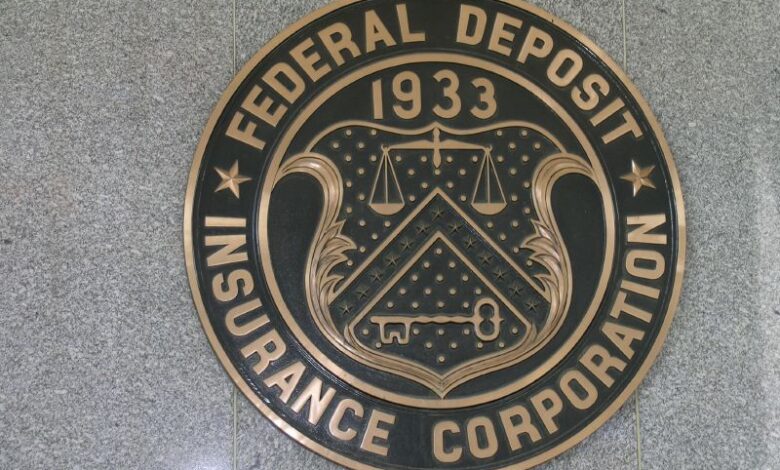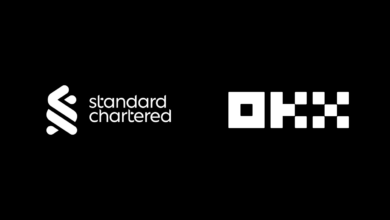FDIC Signals Support for Bank Use of Public Blockchains in Upcoming Guidance

The Federal Deposit Insurance Corporation (FDIC) is moving to establish a clearer and more flexible regulatory framework that would allow U.S. banks to engage with cryptocurrencies—including the use of public, permissionless blockchains.
Speaking at the American Bankers Association Washington Summit on April 8, FDIC Acting Chairman Travis Hill outlined the agency’s evolving approach to crypto-related activity.
Progress on Public Blockchain Engagement
A key focus is how regulated banks interact with public, permissionless blockchains. Hill noted that while other global jurisdictions have already allowed banks to operate on public chains, U.S. regulators have so far taken a more conservative approach.
However, the FDIC no longer sees a full prohibition on public blockchain use as appropriate. Hill said the agency now believes such a stance would be too restrictive, though he emphasized that “appropriate guardrails” must be in place to support safe participation.
The FDIC is currently reviewing earlier interagency guidance—including the joint statements from January and February 2023—to develop a more robust framework for responsible use of public networks.
Another issue under consideration is whether public blockchains can be operated in a permissioned format. According to Hill, regulators will need to “define and supervise blockchain configurations that blur the line between open and permissioned environments.”
Upcoming Guidance and Supervision
Hill stated that the FDIC will release further guidance to address specific digital asset use cases and expand regulatory clarity.
The agency continues to explore the scope of permissible crypto-related activities, the supervisory treatment of blockchain-based products, and the risk management expectations for banks entering this space.
He explained that the FDIC’s broader goal is to establish a supervisory model that “enables innovation while ensuring adherence to safety and soundness standards.”
Hill also pointed to a significant regulatory shift: the FDIC has rescinded its earlier requirement that supervised banks notify the agency before launching digital asset or blockchain initiatives. He called this policy update “a foundational shift in how to treat crypto and blockchain technologies within the US banking system.”
Stablecoins and Deposit Insurance
The acting chairman also addressed stablecoin regulation, especially as Congress considers new legislation.
The FDIC is looking at whether to update its rules on pass-through deposit insurance to clarify how stablecoin reserve deposits may qualify. Among the concerns are liquidity risk, compliance with anti-money laundering laws, and cybersecurity standards.
Hill referenced prior moves by the Office of the Comptroller of the Currency (OCC) in 2020 and 2021, which allowed national banks to participate in stablecoin-related activities such as custody, issuance, validator roles, and accepting deposits. Now, the FDIC is evaluating whether to expand on these definitions or add more permitted use cases.
Tokenized Deposits and Smart Contract Risks
Hill also discussed the treatment of tokenized real-world assets and liabilities—including tokenized commercial bank deposits.
The FDIC’s position, he said, is that deposits are deposits, regardless of the technology or recordkeeping deployed.
Still, Hill flagged concerns about how programmable smart contracts could complicate bank resolutions. Specifically, he questioned what happens if a smart contract automatically allows a counterparty to withdraw at par after a bank has failed, noting that such scenarios could increase resolution costs if there is no way to stop these flows.
This has led the FDIC to explore technical safeguards that could prevent automatic outflows during resolution events. The challenge, Hill noted, is aligning on-chain programmability with traditional regulatory protections designed to ensure the orderly winding down of failed institutions.
Overall, the FDIC’s updated posture marks a significant step toward regulatory certainty for U.S. banks exploring crypto infrastructure—balancing innovation with a strong emphasis on risk management and clear regulatory boundaries.





